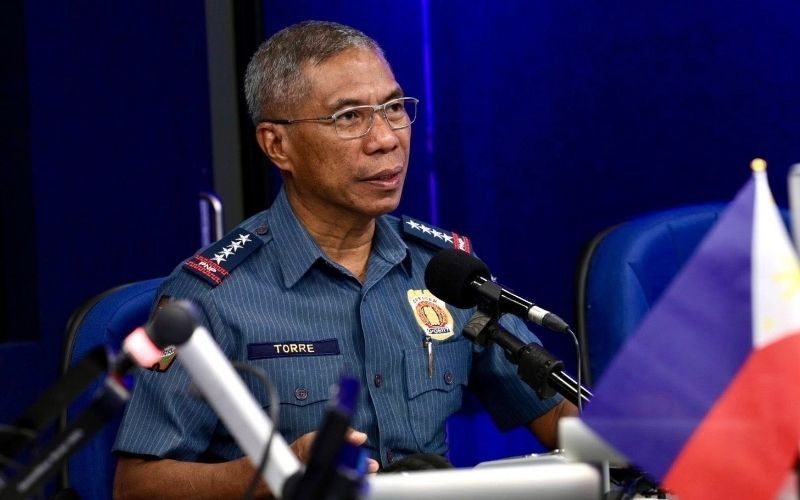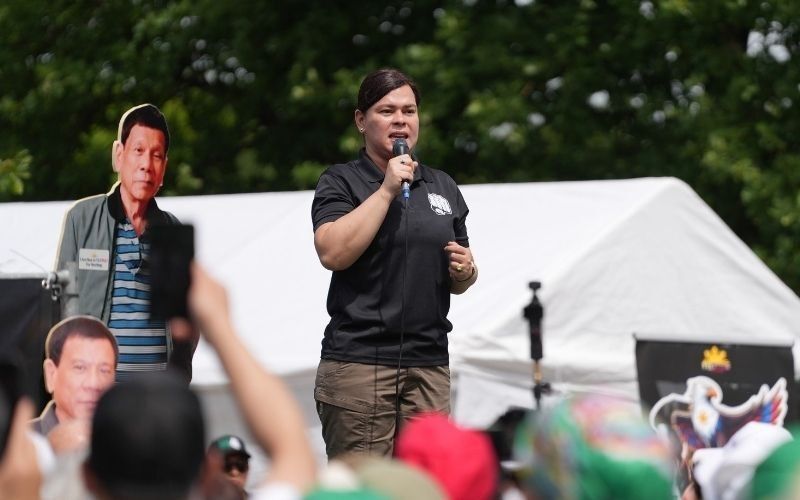
Upgrade to High-Speed Internet for only ₱1499/month!
Enjoy up to 100 Mbps fiber broadband, perfect for browsing, streaming, and gaming.
Visit Suniway.ph to learn
Cristina Chi - Philstar.com
February 27, 2025 | 4:12pm
MANILA, Philippines — At least one in four Filipino college students are willing to accept a non-democratic form of governance, according to a new survey among Southeast Asian nations, placing the Philippines second only to Singapore in its youth's openness to undemocratic rule.
A new study published by the ISEAS – Yusof Ishak Institute reveals that 25.3% of Filipino undergraduate students agree that "under certain circumstances, a non-democratic government is acceptable." This ranks Filipino youth just behind Singapore (27.6%) and ahead of Thailand (24.1%), Indonesia (24.6%), Malaysia (19.4%), and Vietnam (18.9%) in their willingness to consider different political systems.
These findings come from a study conducted between August and October 2024 by researchers Norshahril Saat, Iim Halimatusa'diyah, Panarat Anamwathana, Syaza Shukri, and Veronica Gregorio.
The survey examined political attitudes among 3,081 undergraduate students across six Southeast Asian countries: the Philippines, Indonesia, Malaysia, Singapore, Thailand and Vietnam.
The researchers used an online survey to gather responses from around 500 undergraduates per country, with balanced gender representation and a mix of academic disciplines.
Democratic skepticism
Only around half (49.2%) of Filipino undergraduate students believe democracy is the best governance system, positioning them among Southeast Asia's most skeptical youth regarding democratic institutions. This figure is lower than Malaysia's 65.4%, Singapore's 52% and Thailand's 49.7%.
Meanwhile, at least 17% of Filipinos surveyed see no difference between democracy and other systems of governance, the second highest rate of democratic skepticism in the region behind only Indonesia (21%). This is followed by Thailand (14.8%), Vietnam (13.1%), Singapore (12.1%) and Malaysia (9.7%).
Dissatisfaction with current rule
Dissatisfaction with their country's current political system is relatively widespread among Filipino youth, with 61.4% expressing discontent — the second highest rate in Southeast Asia behind Indonesia's 71.5%. This contrasts sharply with Singapore and Vietnam, where nearly 90% of youth reported satisfaction with their political systems.
Across the region, confidence in political situations varies dramatically. Filipino youth show significant disillusionment, with only 25.9% viewing their political situation positively. This places them in the bottom tier alongside Indonesia (15.3%) and Thailand (16.4%), which recorded even lower rates.
In contrast, Singaporean (72.4%) and Vietnamese (68.2%) youth expressed overwhelming confidence in their political landscapes, while Malaysian youth (31.9%) occupy a middle ground.
Meanwhile, the Filipino youth's trust in law enforcement is similarly tepid, with only 30.3% expressing a favorable view. This is far below the confidence levels in Singapore (76.8%) and Vietnam (68.1%). Malaysian youth show comparable trust levels (33.4%), while Indonesian (11.0%) and Thai youth (16.2%) express even lower confidence in their law enforcement institutions.
The study also found concern about corruption to be the second-highest among Filipino youth, with 73.3% expressing strong concern, trailing only behind Indonesia at 89.0%
Political participation
The survey shows that 72.9% of Filipino respondents are interested in joining organizations that work on socio-political issues, with 23.9% very interested and 49.0% moderately interested. This places the Philippines second in Southeast Asia, trailing behind Vietnam (70.4%), while Malaysia (56.9%) and Thailand (60.1%) reported lower levels of interest.
Filipinos also rank second among the six Southeast Asian countries actively searching for social and political information online, with 59.6% doing so "always" or "quite often." Indonesia leads with 72.8%, while Vietnam ranks lowest at 53.1%.
Contradictions
Interestingly, the survey also revealed some seemingly contradictory findings that highlight the complex understanding Southeast Asian youth have regarding civic rights and engagement.
In the Philippines, while 62% believe people can express their political views without fear, a striking 85.3% remain concerned about freedom of speech — the highest level of concern in the region. This pattern of simultaneously believing in existing freedoms while worrying about them appears throughout Southeast Asia, with Malaysia showing a similar contradiction (63.2% believe they have free expression, yet 83.6% are concerned about it).
The researchers believe this apparent contradiction suggests the Philippines' (and the region's) youth may associate "freedom of expression" with forms of communication beyond just political speech, including freedoms to dress, attend rallies or express religious beliefs.
Another surprising finding shows that despite high concerns about issues like corruption, many Southeast Asian youth still feel their governments are addressing their interests.
On average, 62.8% of young people across all six countries believe "the government is concerned with the aspirations and interests of young people."
Philippines' history of student activism
The Philippines has a long and storied history of student activism. The youth were among those who led the First Quarter Storm in the 1970s, a series of massive protests against the Marcos administration that preceded the declaration of martial law in 1972. Decades later, they played a role in the 1986 EDSA People Power Revolution, joining mass mobilizations that ultimately toppled Ferdinand Marcos Sr.'s dictatorship and restored democracy.
Even after the People Power revolt, Filipino youth have continued to fight for democratic freedoms. In 2001, university students helped fuel protests that led to the ouster of President Joseph Estrada through the EDSA II movement.
In 2020, scores of young Filipinos took to the streets against the passage of the Anti-Terrorism Act, warning of its potential use to suppress dissent.
Student organizations have also been at the forefront of protests against historical revisionism, press freedom threats and human rights violations.

 3 months ago
17
3 months ago
17



